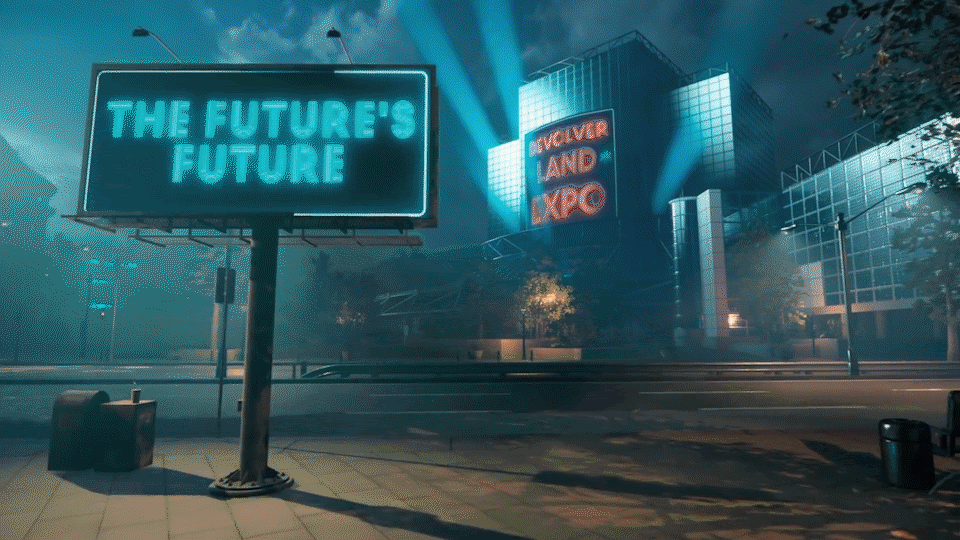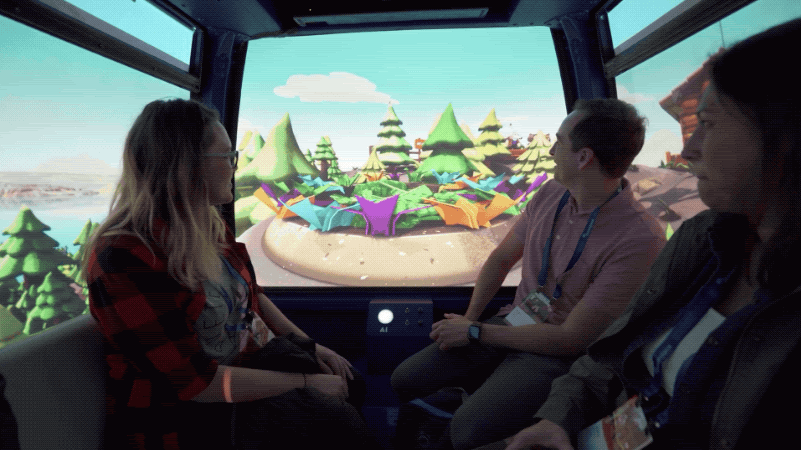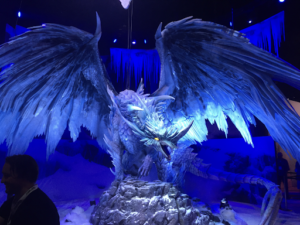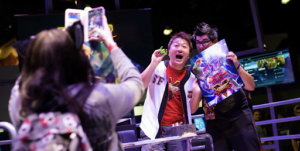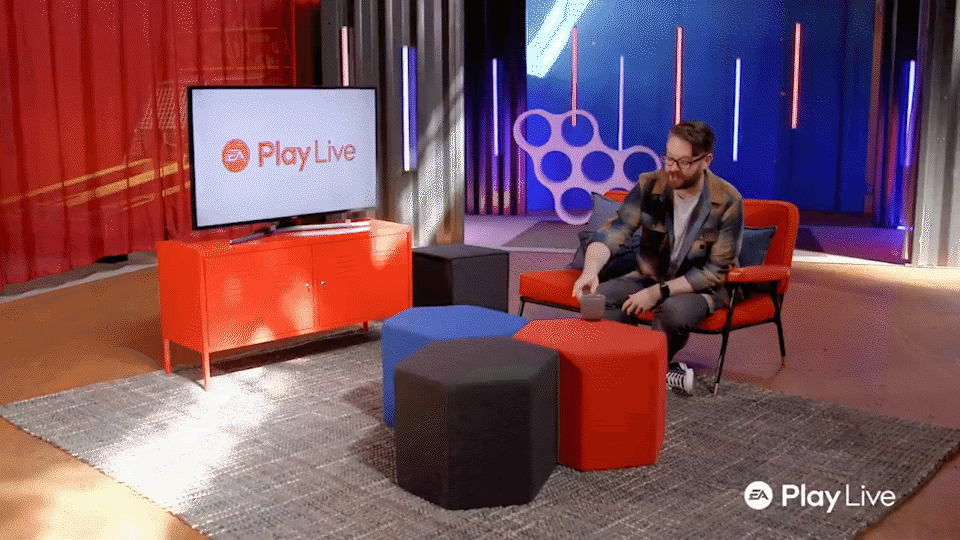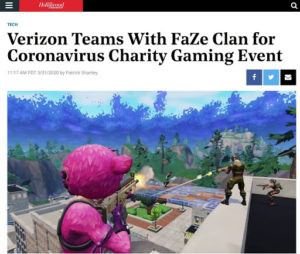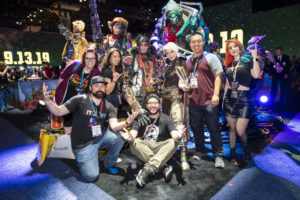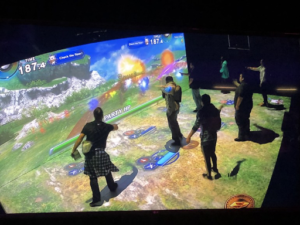By Wayne Leonard, Vice President, Account Director – Gaming & Esports
In the first part of this series, we explored The Gaming Universe, the idea that gaming is not games (it’s entertainment), and summarized with this:
Gaming is about connection, it’s a form of entertainment, and gaming brands harness the passion of their fans so well that there is a lot that other industries can learn when it comes to engaging fans and customers.
With an awareness of how big the market is, and having seen some examples of the passion and amazing digital connections the fans are making, below are 5 Key Learnings to take away. They are by no means exclusive to gaming, but very effective in capturing the passion of gamers to garner that ultimate brand loyalty.
- Be Immersive
Games are immersive entertainment. And there’s no reason your brand activations shouldn’t be as well. In the absence of gaming convention E3 this year, publisher Devolver Digital recently created a game: Devolverland Expo. Described as a “marketing simulator” fans in the game could explore an abandoned Los Angeles Convention Center, watch and retrieve all the trailers, gameplay demo videos, and other secrets lost in the expo’s cancellation. Such “world building” hints towards a shared metaverse, and we’re seeing groups attempt this more and more.
You can take that approach further with literal gamification by creating avatars for your attendees and rewarding them with ‘skins’ (personas), badges or points for participation that they can redeem for merit or swag.
And being immersive isn’t just about remote digital experiences. You can and should be immersive in the branded experiences you create in real life. We’ve certainly (re)created worlds and creatures from games in life sized proportions to the surprise and delight of fans.
Outside of gaming, Salesforce does a great job creating experiences that immerse their audience into new worlds. Brands like Lexus and Acura gamify their activations to allow people to immerse and connect with others. Interfaces like skateboards and neural controllers bridge the gaming and IRL worlds pretty effectively and create some fantastic opportunities for people to connect to the brand and to each other.
- Be Spectator-Worthy
In this time of quarantine, everything is entertainment. Our second learning is to make what you present spectator-worthy. Now more than ever, the virtual experience matters. Your audience has many elements competing for their time. Production value matters, and you need to present a compelling case for them to stick around. Make even the simplest things entertaining, interesting and share worthy.
When we do physical events, we always try to give the audience something they can’t do or get at home. Now we need to flip that and give them an experience that you can’t get in person.
- Be Engaging
For a virtual event, one way communication won’t cut it. Encouraging engagement – not just between brand and attendee but also between attendees – is key to audience retention. Chats are fine but another way to capture sentiment is with custom emotes like those found on Twitch – it encourages participation even if you don’t have a comment or question.
Games and gaming activations often have Easter Eggs (secret “goodies” found by word of mouth or accident in video games, movies, etc.) hidden for the die-hard fans to discover and gain rewards. Sprinkle a few of these throughout to reward engaged attendees for paying attention.
In a digital ecosystem, social elements can also be added with happy hours and other fun engagements, but if you go a step further and think about engagement as layers of access that you can provide, it opens up more channels for your audience. Think about the traditional meet & greet. In a virtual platform fans can still get some 1:1 time with their favorite game designer, or esports team. But other audiences can also be brought close up & personal – you can imagine holding meet & greet sessions with key business leaders for the ultimate Q&A experience. The access is unprecedented.
Engage beyond your core audience by opening up the ecosystem. Esports organization FaZe clan recently did a charity tournament for COVID-19 relief in partnership with Verizon. This is a great way to engage with the community, bring like-minded fans together and provide them a way to give back. (And generating great PR along the way doesn’t hurt.)
Speaking of the community, many enduring games have great community managers to give special attention to the fans. A community manager is responsible for advocating a brand on social networks while a social media manager is responsible for being the brand on social media. Community managers create their own social personas and actively go out within the online (and in person) community to connect with fans and advocate accordingly. Great community management allows for fans to have a personal relationship with the brand on a continuous basis and goes a long way to foster loyalty.
Another path to engagement is by creating a sense of journey, with achievements and certifications gained by moving through stages and levels. From our experience with non-gaming brands, Salesforce customers collect badges and Google achievements can similarly be rewarded with stickers.
Finally, personalization and lifestyle connection is important. Identifying passion points and interests like cocktails, exercise and foodie classes can help drive engagement too.
- Be Exclusive
Exclusivity is another key element in gaming events. What is the thing that is going to get a fan to give you attention in the moment. Is it FOMO? Or is it about access to content and information? There’s a reason fans queue up all night to be first in line at the San Diego Comic-Con keynotes. It’s also access to celebrities. Where else can you meet that developer you’ve been following for years, or get your photo taken with your favorite esports team? It’s about exclusive experiences – like getting the composer of your favorite game to play live with his band or being able to go head to head with the director of the game in a tournament. And it’s also about the rewards and “stuff” – from exclusive merch to getting in-game skins (personas) and digital currency that you had to be there to get. These all drive perceived value to your audience.
- Be Authentic
Another thing we can learn from gaming is that nuance can make a big difference.
It’s not enough to be authentic to your brand, or to be authentic to the audience or fans. It has to be that sweet spot where we’re authentic to both. It’s actually harder than it sounds, and lots of brands believe they’re authentic but miss the mark with their audience. The brand isn’t what you present, it’s ultimately how it’s experienced.
Bonus Round
We’ve talked a bit about some of the key learnings from working with gaming & esports audiences and brands, but what about brands who want to get in front of this audience? As you saw up front, it’s an audience demographic that is wonderfully passionate yet typically hard to reach by traditional media.
As esports in particular continues to gain momentum, major brands are evaluating where esports fits into their marketing strategy. What’s encouraging is that 60% of gamers are open to brand sponsorship, and 48% of the products advertised are perceived as authentic. Finding the right partner to help your entree into this channel is key for that first impression.
If you look out at the esports ecosystem, you’ll notice some big brands like Geico, American Express and Honda successfully activating in very authentic ways. At the Capcom Cup, which is the world championship for Street Fighter players, the team worked with POCKY to stage an exhibition match that went out on the stream as part of the programming for the weekend. Again, done right, a non-endemic brand can have a profound impact.
Through this two-part blog series, we’ve learned that gaming is a huge category, that it’s not just games. That it’s all about connecting, and it’s ready for sponsors. We’ve learned five ways to borrow from the gaming world in our own experiential activations; be immersive, spectator-worthy, engaging, exclusive and above all, be authentic.
We’re thrilled to have been able to share some of our experiences in gaming and talk about how we’ve transferred these key learnings across multiple client categories. Hopefully you’ve been inspired.
Download our gaming white paper: Esports and Gaming: the New Frontier


